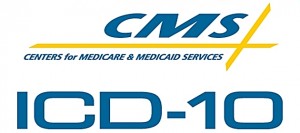The health care industry is making the transition from ICD-9 to ICD-10 because:
ICD-9 codes provide limited data about patients’ medical conditions and hospital inpatient procedures. ICD-9 is 30 years old, it has outdated and obsolete terms, and is inconsistent with current medical practices. Also, the structure of ICD-9 limits the number of new codes that can be created, and many ICD-9 categories are full.
ICD-10 codes allow for greater specificity and exactness in describing a patient’s diagnosis and in classifying inpatient procedures. ICD-10 will also accommodate newly developed diagnoses and procedures, innovations in technology and treatment, performance-based payment systems, and more accurate billing. ICD-10 coding will make the billing process more streamlined and efficient, and this will also allow for more

WHO NEEDS TO TRANSITION TO ICD-10?
ICD-10 will affect diagnosis and inpatient procedure coding for everyone, however, does not affect CPT coding for outpatient procedures. ICD-10 will have an impact on every healthcare provider.

